The phrase “one and done” is used in a variety of contexts; for instance, parents with one child and no plans for others might say “We’re one and done.” More often, the expression is associated with college athletics, particularly top-tier basketball players who compete at the collegiate level for a single season before turning pro. Driving this behavior is the National Basketball Association’s (NBA’s) one-and-done rule, which requires that players be “at least 19 years old and one year removed from high school” before entering the league.
This b-ball context was the impetus for Foot Locker’s limited edition “One and Done” t-shirt, which it sold strategically, just during NBA draft day and only online and in its Time Square store. One of the commercials that advertising giant BBDO created for the exclusive offer featured projected NBA draftees Trae Young and LiAngelo Ball, both well-known one-and-done players. Meanwhile, comedian Reggie Couz played the over-the-top pitchman, pushing the tees for $29.99 each.
How did the ads do for Foot Locker? They 'scored'—the shirts sold out online. Draft night also went well for Young, who the Dallas Mavericks selected with the fifth overall pick before trading him to the Atlanta Hawks. Unfortunately, one and done didn’t work out well for Ball, who went undrafted.
Many have debated the legitimacy and the efficacy of the NBA’s one-and-done rule, which seems poised for change. Some maintain that the policy hurts college basketball, while others argue that no artificial criteria should keep qualified adults from entering employment. Still, others point to the great success of certain one-and-done players like two-time NBA champion and Finals MVP, Kevin Durant.
The aim here isn’t to resolve the complicated NBA one-and-done debate; rather, it’s to raise a question that affects an even wider swath of people—especially young, impressionable ones:
Should a company brand and promote “one-and-done” products?
I can already hear readers groaning: “Loosen up. They’re just t-shirts!” That’s true. What’s more, Foot Locker’s commercials were parodies that made fun of the annoying infomercials we love to hate, so it was hard to take the campaign too seriously.
Still, real shirts were sold thanks to actual ads that promoted them. Most importantly, those shirts shared a message that socially and developmentally is not a very constructive one: It’s okay to stop after one try.
Yes, we need to realize when it’s time to cut our losses and “pull the plug” on efforts that just aren’t working. That approach, however, is pretty much the opposite of one and done, which more accurately suggests things like, ‘I’ve arrived’ and ‘Don’t mess with perfection,’ or in the case of basketball, ‘I’m NBA material.’
Of course, the problem is that very few people have ‘arrived’; most of us are far from perfect. Instead of quitting and moving on, we need to keep churning and grinding: pushing ourselves to get better by finding even small ways to improve. Rather than ‘one and done,’ our mantras should be things like ‘life is a marathon, not a sprint’ and ‘failures are the path to success.’
But does a saying like 'one and done' really have that much sway over people? Some of the best advertising slogans do make their way into common language use, influencing people’s perceptions and values. For instance, Wendy’s famous 1984 ‘big bun’ commercial made “Where’s the Beef” a national catchphrase that presidential candidate Walter Mondale even invoked. Or, think of all the times you've heard someone quote Nike’s iconic “Just Do It” theme to move themselves and others forward.
Some may still argue that rational adults know better than to take these taglines seriously. Even if that’s true, there’s the issue of who else these marketing messages reach, probably most effectively: young people.
The NBA has one of the youngest fan bases of all sports, with 43% of fans under the age of 35 and 13% between the ages of two and seventeen. By using potential NBA players to promote its One and Done t-shirts on Draft Day, Foot Locker was likely targeting this same youthful demographic.
One problem with this approach is that there has been considerable concern about “children's ability to fully comprehend and evaluate advertising messages.” Of course, very young children are not the ones online buying One and Done t-shirts, yet they are still exposed to the advertising. Young people of all ages experience the social impact of the slogan as they see peers wearing the shirts in school and elsewhere.
It’s easy for any of us to be overconfident in our abilities. Individuals with less life experience, who are still developing in many ways, need to be especially careful of such hubris. In many ways, young people are the last ones who should be thinking about being “one and done,” and marketers should be especially sensitive about encouraging such misguided notions.
Besides potential individual failure, there’s also possible social fallout from a one-and-done mentality, namely the impact on others affected by a person’s premature decision to move on. Granted, few relationships come with long-term assurances, but a rash departure caused by a lack of commitment can leave a gaping hole in others’ lives.
In his class business book The Five Dysfunctions of a Team, Patrick Lencioni identified lack of commitment as the third fatal flaw organizations face. Some believe that Millennials have unique struggles with commitment. In any case, no one needs encouragement to end allegiances or to be disloyal, as the one-and-done message might suggest.
Kenny Rogers famously sang that card players need to know “when to hold 'em,” and “when to fold 'em.” Unfortunately, a one-and-done message encourages many individuals, especially young people, to play their hands too soon. Not everything that people say should appear on a t-shirt. Let’s hope Foot Locker permanently retires its ill-advised tees so its “Single-Minded Marketing” also becomes one and done.
Learn more about the Mindful Matrix and Mindful Meter.
Check out Mindful Marketing Ads and Vote your Mind!

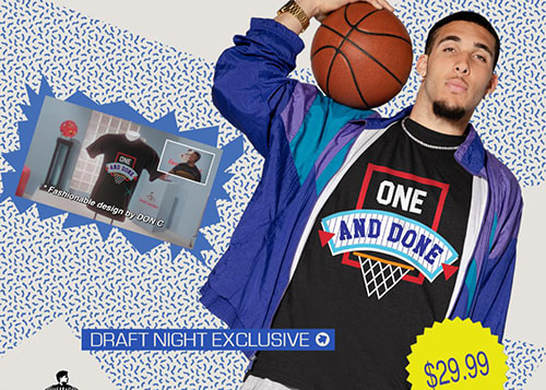
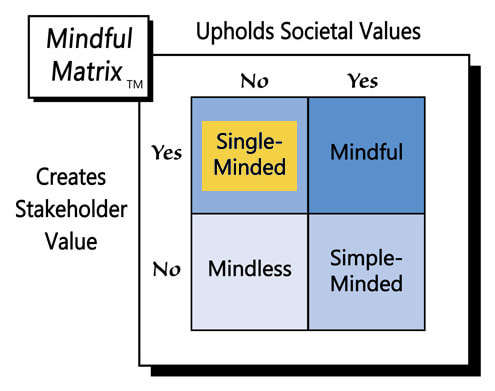
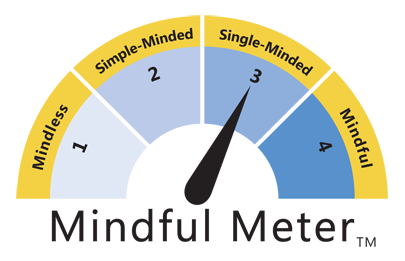
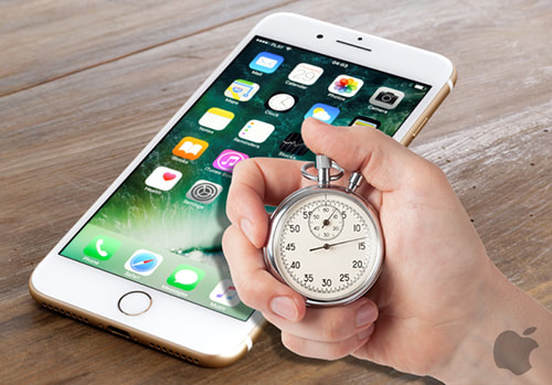
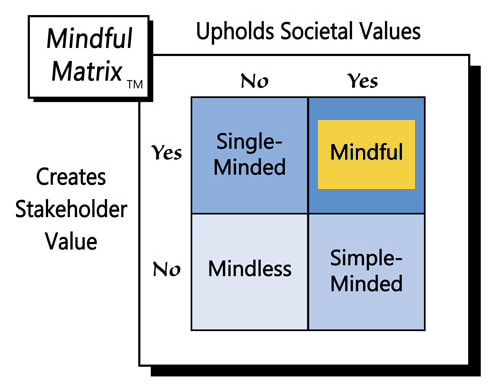
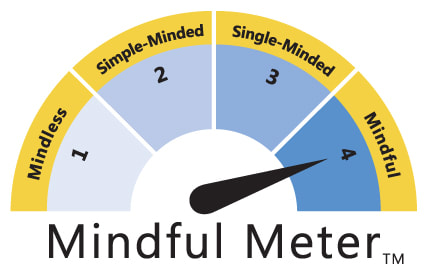
 RSS Feed
RSS Feed